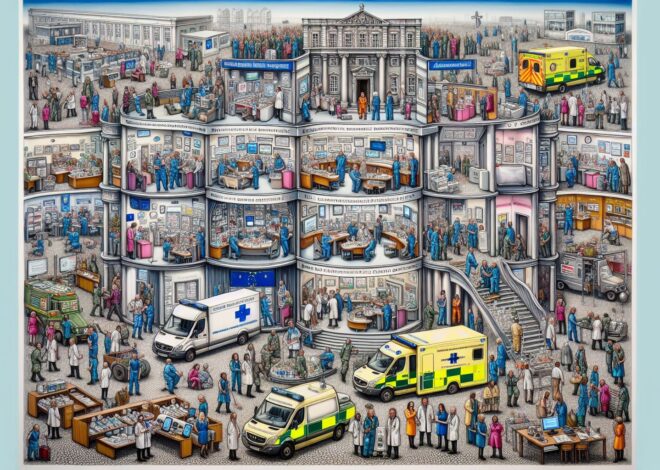
The Preparedness and Response of European Health Systems
European health systems have faced unprecedented challenges in recent times, with the outbreak of the COVID-19 pandemic testing their preparedness and response capabilities. As frontline health professionals, policymakers, and concerned citizens, it is essential to reflect on the strengths and weaknesses of these systems to ensure that lessons are learned and improvements are made for the future.
Preparedness:
One of the key aspects of a robust health system is its level of preparedness for emergencies and pandemics. European countries have varying degrees of readiness, with some being better equipped than others. The availability of resources, such as hospital beds, medical equipment, and trained healthcare professionals, plays a crucial role in determining the preparedness of a health system.
It is essential for policymakers to prioritize investment in healthcare infrastructure and personnel to ensure that the system can effectively respond to crises. Training programs for healthcare workers should be comprehensive and ongoing to ensure that they are equipped with the necessary skills to handle emergencies. Additionally, stockpiling of essential supplies, such as personal protective equipment and medications, is essential to prevent shortages during times of crisis.
Response:
The response of European health systems to the COVID-19 pandemic varied widely across countries. Some nations were able to quickly implement measures such as lockdowns, testing, and contact tracing, which helped to contain the spread of the virus. Others struggled to cope with the influx of patients, leading to overwhelmed healthcare facilities and increased mortality rates.
Effective communication and coordination between health authorities, healthcare providers, and the public are essential in mounting a successful response to a health crisis. Clear and timely information helps to build trust and compliance with public health measures, such as social distancing and wearing masks. Collaboration between countries is also crucial in sharing best practices and resources to tackle a global health threat.
Lessons Learned:
As we reflect on the challenges faced by European health systems during the COVID-19 pandemic, several key lessons emerge. First, the importance of investing in public health infrastructure and preparedness cannot be overstated. Adequate resources and trained personnel are essential for an effective response to emergencies.
Second, the need for collaboration and coordination at both national and international levels is critical. Health systems must work together to share information, resources, and best practices to address global health threats effectively. This includes developing mechanisms for rapid response and communication during emergencies.
Conclusion:
In conclusion, the preparedness and response of European health systems to the COVID-19 pandemic have highlighted both strengths and weaknesses. While some countries were able to effectively contain the virus and protect their populations, others struggled to cope with the demands placed on their healthcare systems. Moving forward, it is essential for health professionals, policymakers, and concerned citizens to work together to strengthen the preparedness and response capabilities of European health systems. By learning from past mistakes and implementing improvements, we can better prepare for future health crises and protect the health and well-being of our communities.



